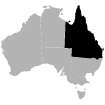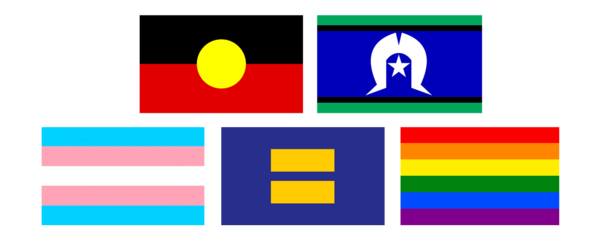For the third year in a row, In the Frame: Screen Queensland Practitioners Forum hosted some of the brightest minds in The Australian screen industry to transfer their lifetimes of knowledge to our local practitioners, providing of-the-moment insights, encouraging forward-thinking and highlighting the opportunities available within our sector.
We began the day with a Welcome to Country from Aunty Raelene Baker and opening addresses from Screen Queensland CEO Jacqui Feeney and Chief Creative Officer Dr Belinda Burns. They shared Screen Queensland’s vision for the sector and the strides we’ve made over the past year with new programs like The Writers’ Room, Online Production Grants and Short Film Fund, which are supporting practitioners with new opportunities for developing local IP.
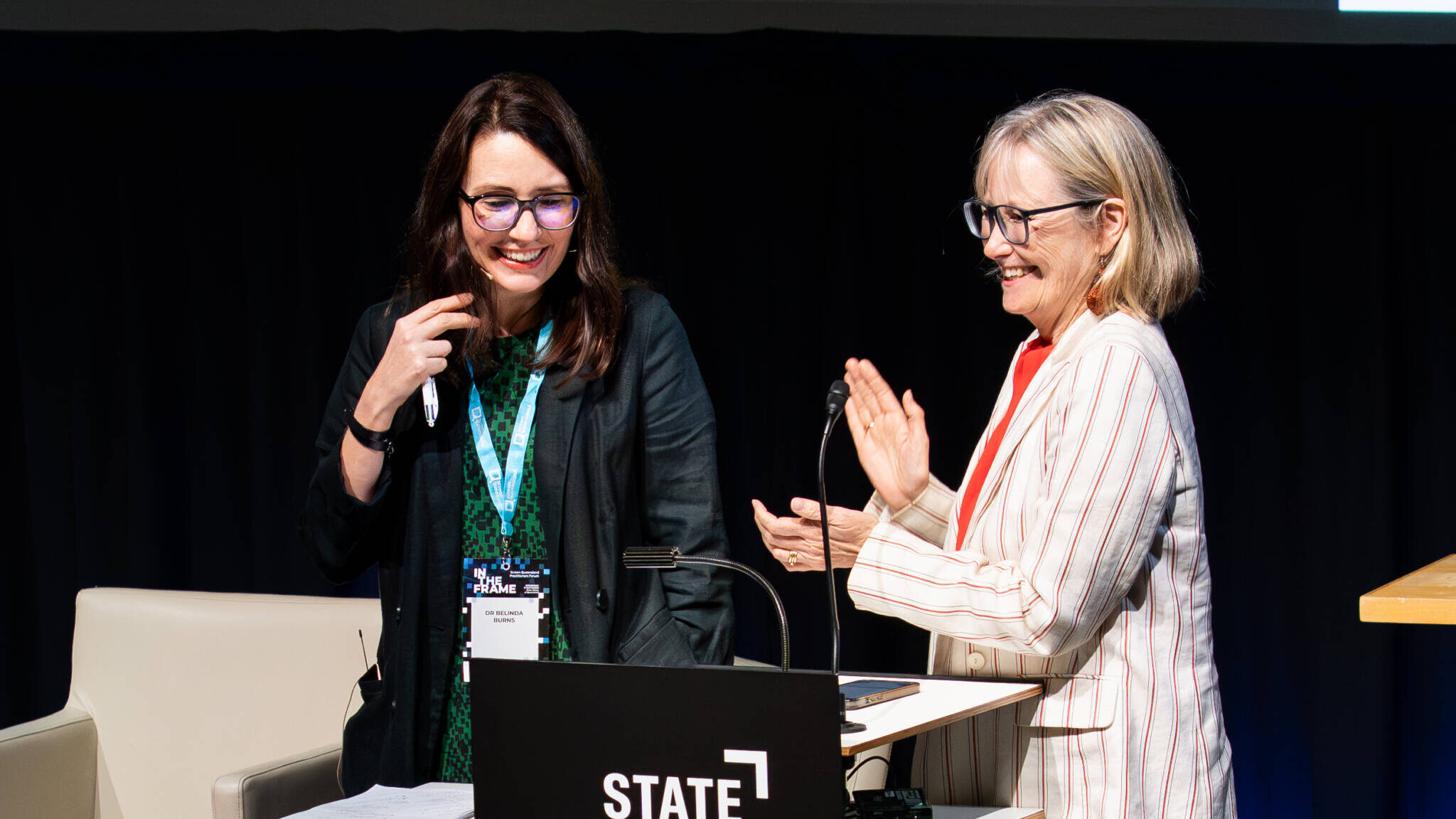
Rise of the Indie Feature
Moderator: Phil Enchelmaier (Content Director, Screen Queensland)
Panellists: Grant Hardie (Co-Founder and Festival Director, Monster Pictures), Sandra Sciberras (Director and Producer, Sandy Pictures), Mitch Stanley (CEO, No Coincidence Media) and Marc Wooldridge (Founder and Managing Director, Maslow Entertainment)
Phil Enchelmaier opened the discussion with a simple question: “Should we be hopeful about indie filmmaking?” The panellists responded with a resounding YES. While there are always going to be challenges for independent filmmakers, the market ground is fertile for the rise of new voices and ideas. Sandra commented that she “doesn’t know anything different” to independent filmmaking and that almost all Australian productions are technically ‘indie’.
The panel emphasised the importance of crafting your production with your ‘week-one’ audience (the people who are going to cinemas during the first week of screenings) in mind, beginning with the script.
“Story is king,” as Mitch Stanley put it.
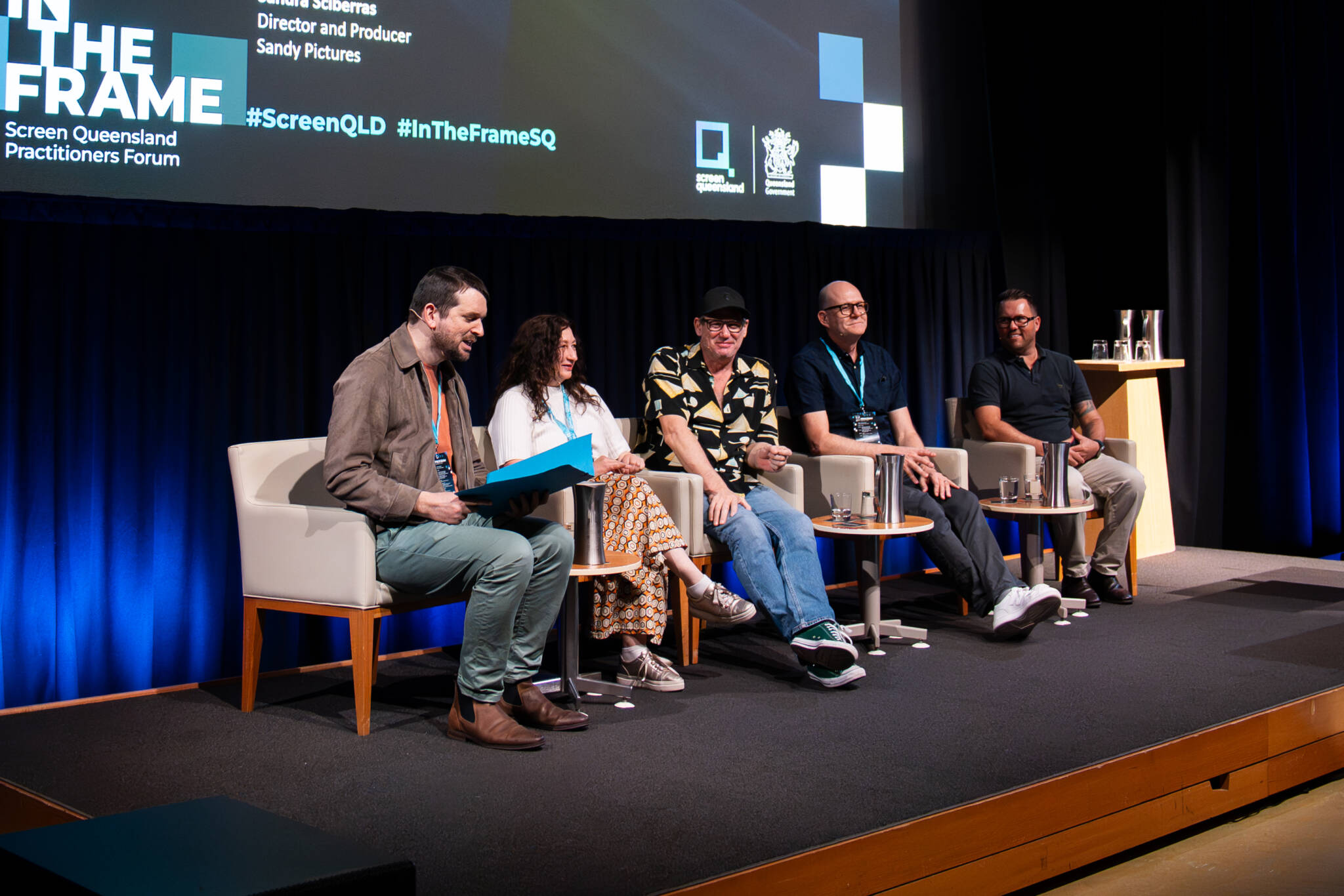
“And can you please make some more films for women?” Marc asked to resounding applause. He highlighted how this demographic is a powerful one for box office numbers as they are more likely to go in groups, make decisions and show up.
Grant and Marc provided their perspectives from the other side of the aisle in distribution. They discussed the importance of a strong verbal pitch and a well-considered marketing strategy: “I think in trailers and posters,” Marc said. They also discussed how cinemas have become an ‘experience’ for movie-goers and the importance of finding your creative network, or as Grant put it: “group therapy”. Placing trust in your team is also vital, and makes the entire process more efficient. Your sales and distribution partners will fight for their projects with exhibitors and while make-or-break elements like premium screening times are never a given, they want your film to succeed as much as you do.
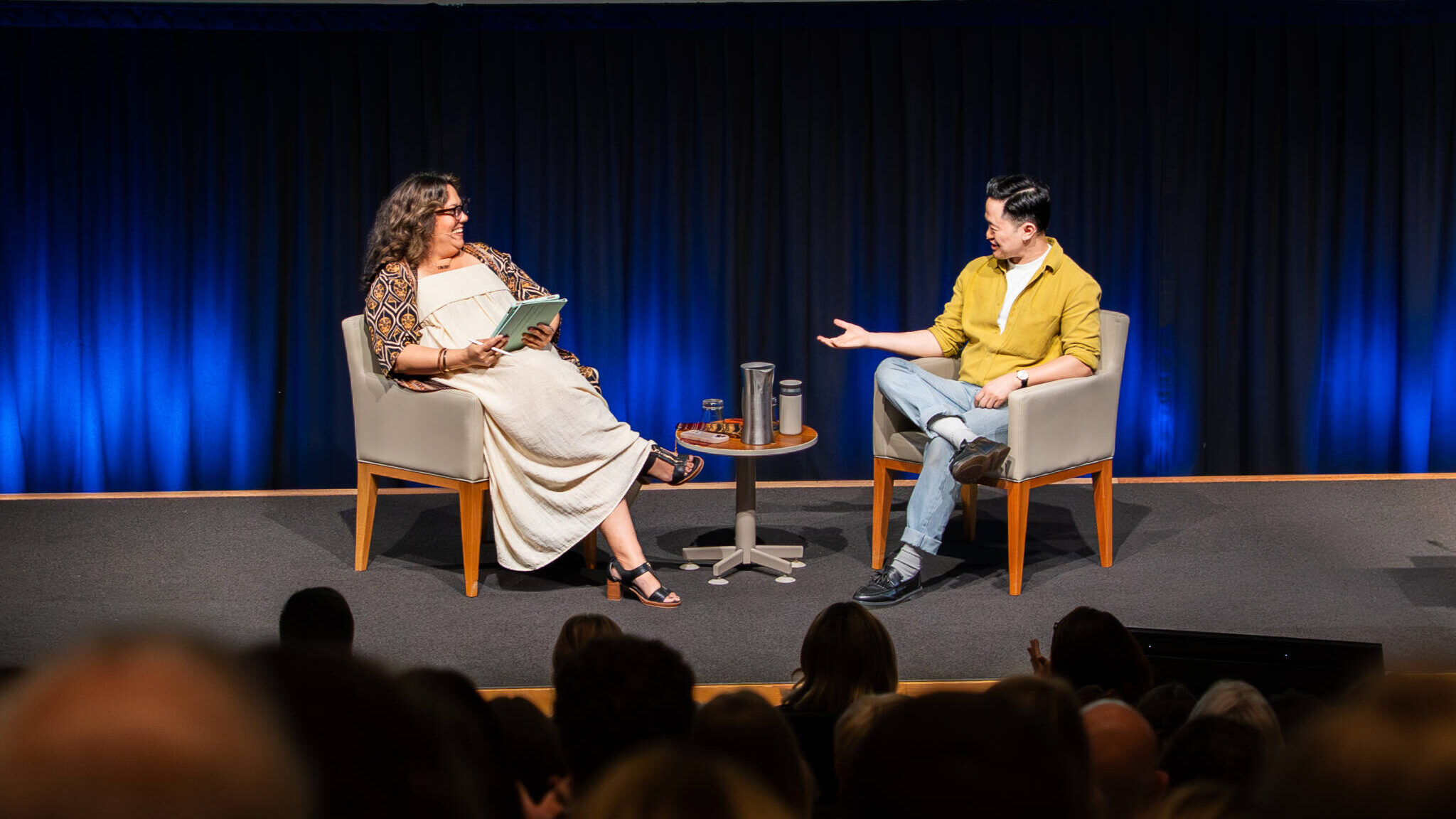
Storytelling, Screenwriting and Surviving the Industry: A Conversation with Benjamin Law
Moderator: Loani Arman (Screenwriter, Director, Producer)
Panellists: Benjamin Law (Screenwriter, Author, Journalist)
Queensland screen creative Loani Arman delved into a lively discussion with Benjamin Law about his career, exploring how he found his voice, wrestled with pigeonholing and made the jump with his memoir to screen in The Family Law for SBS and beyond to Netflix’s Wellmania with Celeste Barber.
Benjamin began his career dipping his toes into playwriting, prose, poetry, journalism and screenwriting through his Bachelor at Queensland University of Technology and his career has followed his sense of storytelling and experimented across these formats.
“I’m fascinated by people’s lives,” Benjamin said. “Life is messy and stories make sense of mess.”
Benjamin, unlike most, revels in pitching and the opportunities for grand scale it allows. When pitching, he follows the tenets of ‘why this story?’, ‘why now?’ and ‘why this business?’, referring to the strategic goals of whomever you pitch to.
He also imparted the traffic light system for receiving notes from stakeholders, shared with him by the creator of Offspring, Debra Oswald. Green notes are good news, orange forces you to wrestle with ideas to find a new (and better) solution, and red notes are opportunities to clarify understanding of the story for all parties and be curious about why the note is being made.
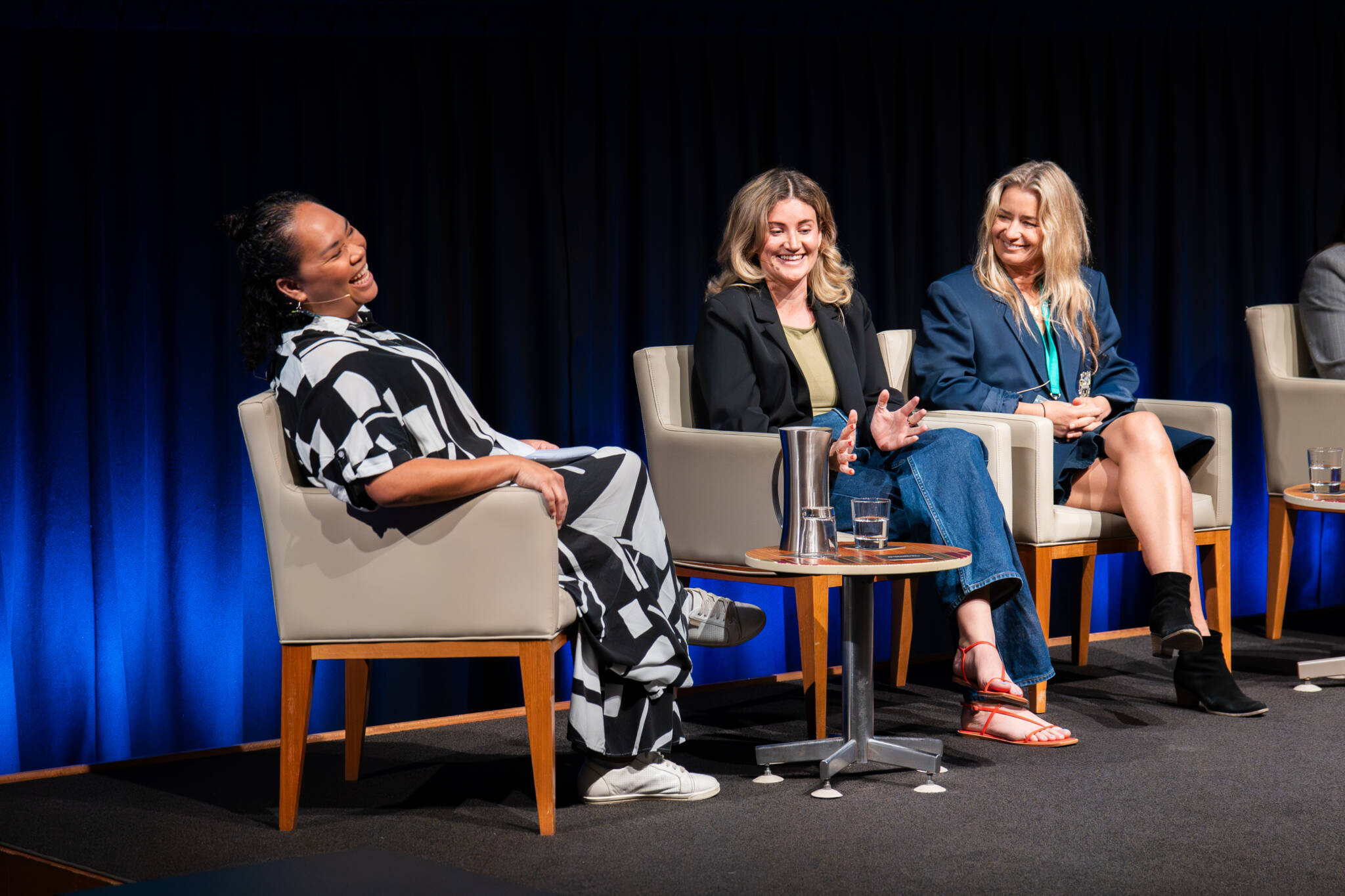
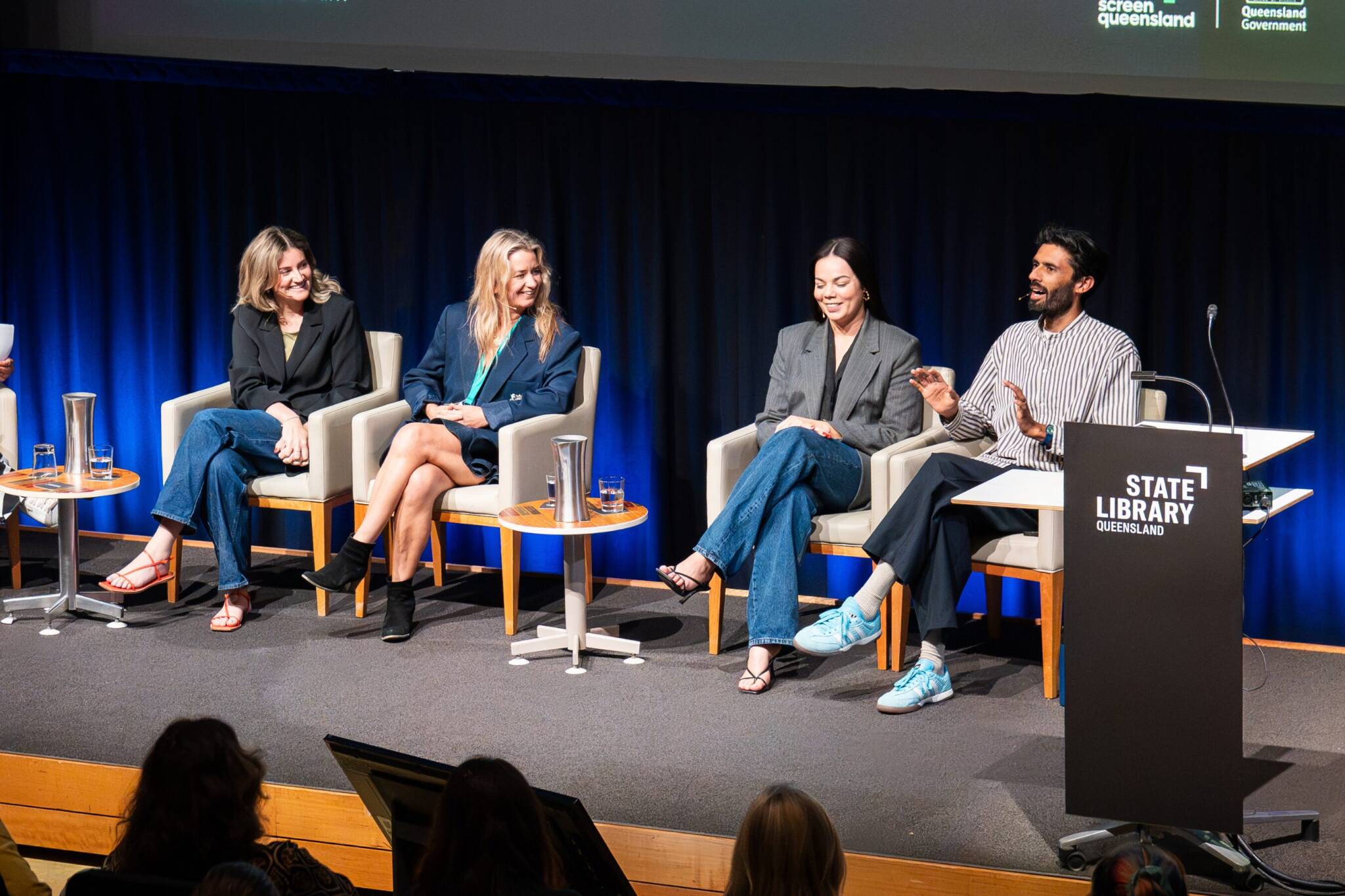
Creative Cut-Through: What’s Hot (and What’s Not) on the Global Stage
Moderator: Danielle Ah Boo (Head of Aboriginal and Torres Strait Islander Unit)
Panellists: Katherine Brown (Scripted Slate Manager, ABC), Lana Greenhalgh (Director of Scripted Originals, Foxtel Group), Nakul Legha (Commissioning Editor Scripter, SBS) and Sophia Mogford (Head of Scripted Content and Comedy, Paramount ANZ)
This panel believe that Aussie content is ‘having a moment’! The Australian style, including our accents, irreverent sense of humour and unique sub-tropical settings, make our screen content distinct globally. Screen stories that connect with a local audience first are key, with universal themes providing additional international appeal.
Each commissioner is searching for a little something different for their development slates, with ABC leaning towards cozy shows that feel like a warm hug and comedy, Foxtel is platforming bold, provocative stories including elevated relationship drama. Crime, as always, dominates what Australians are watching.
Each commissioner also asks for something slightly different when submitting your projects, with ABC and SBS maintaining a year-round submission portal. Both don’t require a full script but recommend pitching your projects when you feel confident you completely understand the story. Foxtel and Paramount have more rigorous expectations with a script including (at least) key scenes and producers on board.
The commissioners emphasised how they need to be completely on board a project to fund it, as they will be pitching that project internally for years before it is finally released.
Unlocking Value: New Strategies to Monetise Screen Content and Build Audiences
Moderator: Tanya Ellen (Head of Content, Screen Queensland)
Panellists: Jason Behan (CEO, Apocalypso), Farhad Meher-Homji (Co-Founder and Head of Strategy, Changer Studios) and Rakel Tansley (Screen Australia)
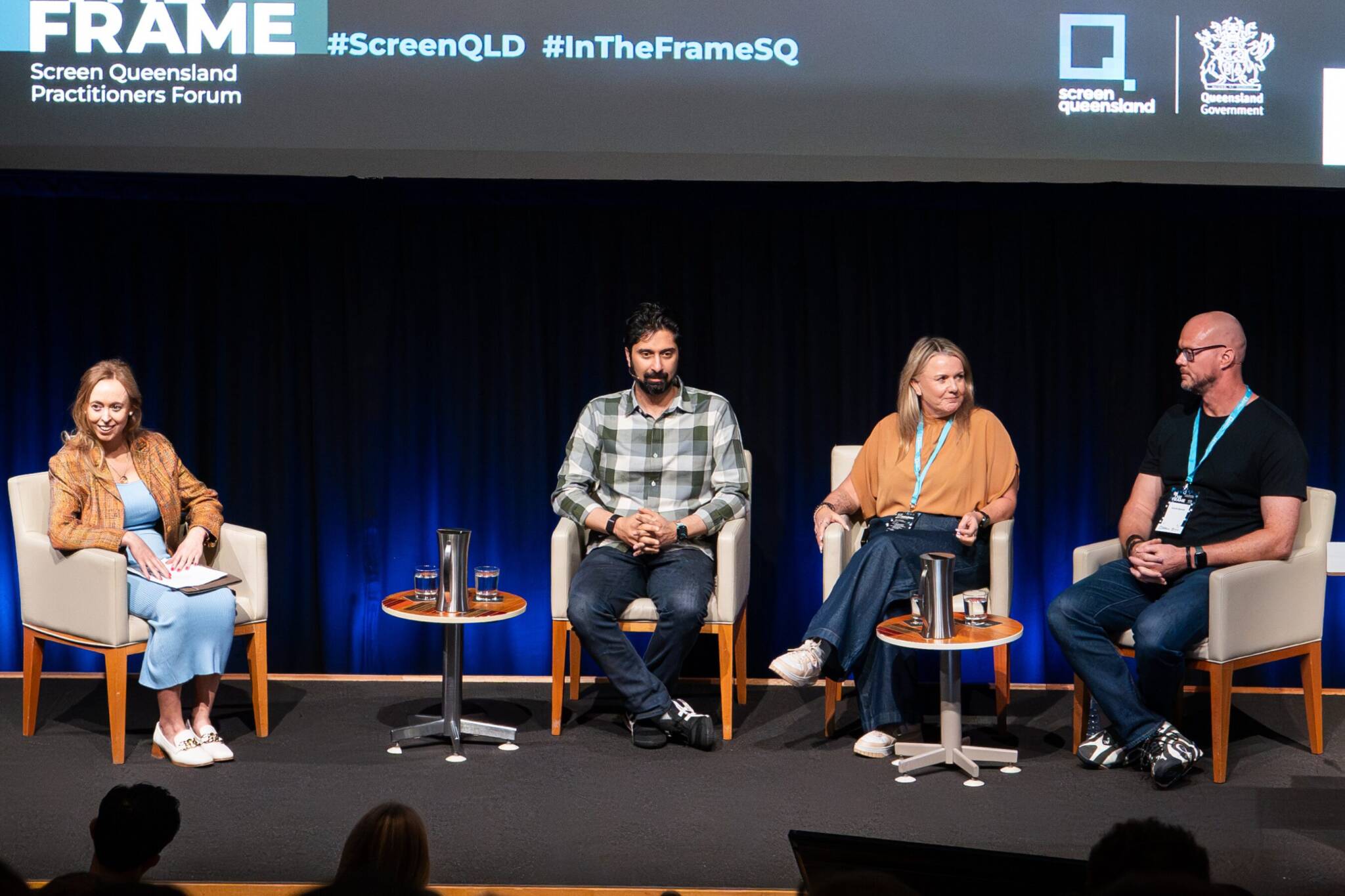
This panel was all about the acronyms: FAST (free ad-supported television), AVOD (ad-supported video on demand), BVOD (broadcast video on demand) and ANZ FTV (Australia and New Zealand free-to-view) and how to earn revenue through sales and territory rights.
The central question is how can you overcome an evolving remuneration model in screen, which is no longer led by DVD sales and box office revenue. New models aim to create as much revenue through as many channels as possible using a singular piece of content. As Rakel said, “It’s an ecosystem—embrace it all.”
Farhad pointed out the importance of understanding the environment that you’re creating for and the psychographics—that is, lifestyle, habits, attitudes and interests—of your audience, rather than just demographics.
Negotiating sales contracts can be a challenging space and the panel discussed key considerations for creatives.
“Not all views are created equal,” Jason said, explaining that channels in each territory will pay differently per view.
The panel suggested going over your sales contracts extremely carefully, making sure you keep what rights you can, and including rights reversion clauses that mean you can resell them if they are not used within an agreed-upon time period.
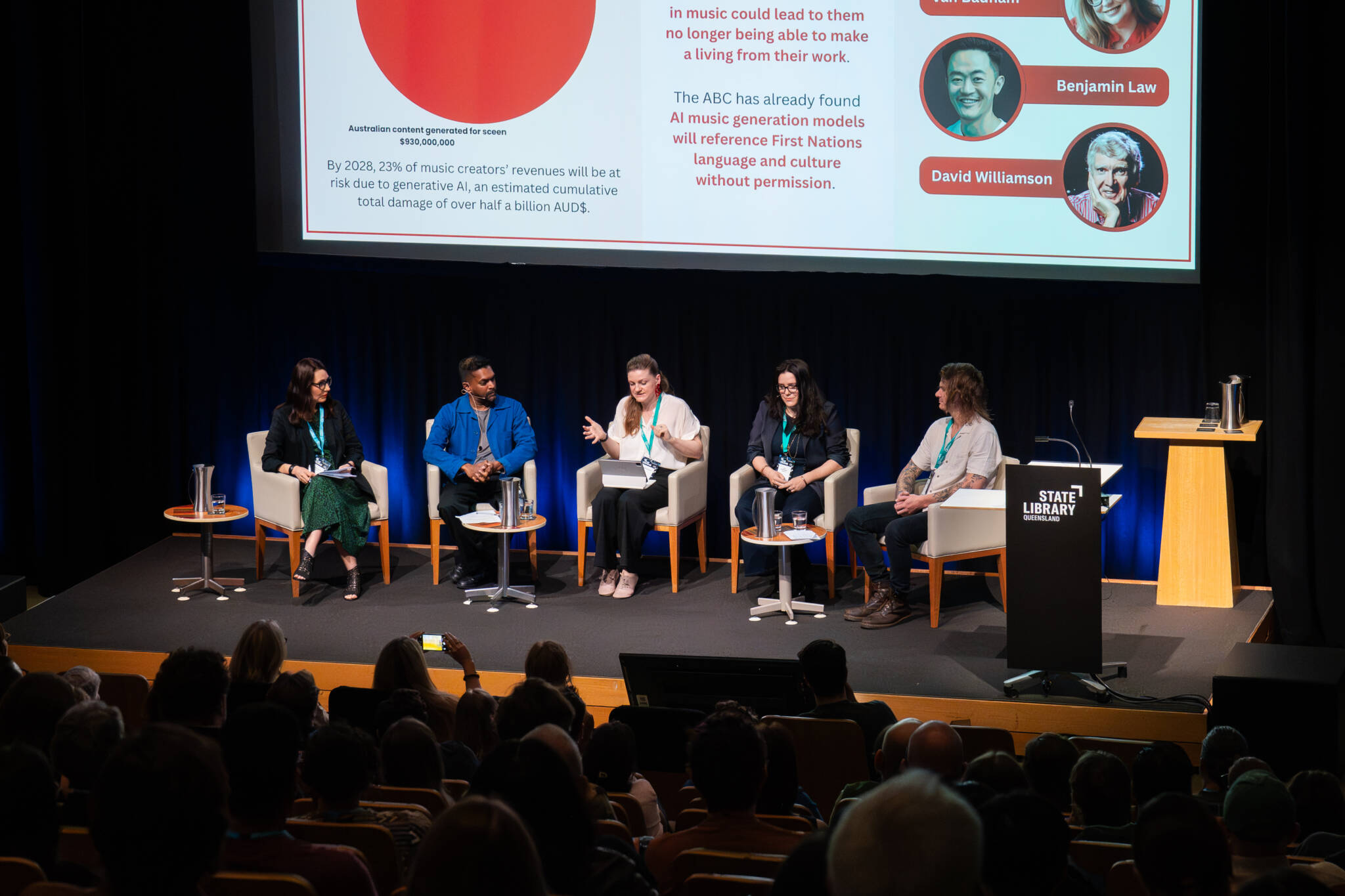
The Debate: AI, Friend or Foe of Creativity
Moderator: Dr Belinda Burns (Chief Creative Officer, Screen Queensland)
Panellists: Kate Armstrong-Smith (Co-Founder and CEO, Othelia Technologies), Arul Baskaran (Emerging Storyteller and Former Head of Innovation Lab, ABC), Alex Flamsteed (Co-Founder and CEO, Taste) and Claire Pullen (Executive Director, Australian Writers’ Guild)
In one of the most highly-anticipated panels of the day, we gathered some of the Australian voices taking part in the debate on AI and the new technologies riding its rise. Arul outlined how companies can begin to explore and engage AI tools without compromising IP and the important legal and ethical considerations that organisations like the ABC are grappling with.
Claire felt that it was more important to think of the people using AI who are making beneficial or destructive decisions instead of labelling the tool itself as ‘friend’ or ‘foe’. Claire discussed the wholesale misuse of copyrighted IP to feed major AI companies: “It’s the largest case of theft in the history of humankind,” and warned about the risks of using such platforms.
Kate’s platform Othelia is tailored to storytellers, using large language modelling and AI to form comprehensive world-building, streamlining processes for expansion and knock-on effects of story-edits. Alex discussed his business, Taste which is tokenising IP using block-chain technology to help creatives protect their work while also using AI to expand their revenue streams.
Arul and Kate discussed the regression to the mean that AI invokes, ultimately producing average work due to its learning technology. “Real creativity is very human and borne out of self-expression,” Arul said.
Kate invoked a darker warning of how widespread this regression is already and will continue to affect culture and language in the real world.
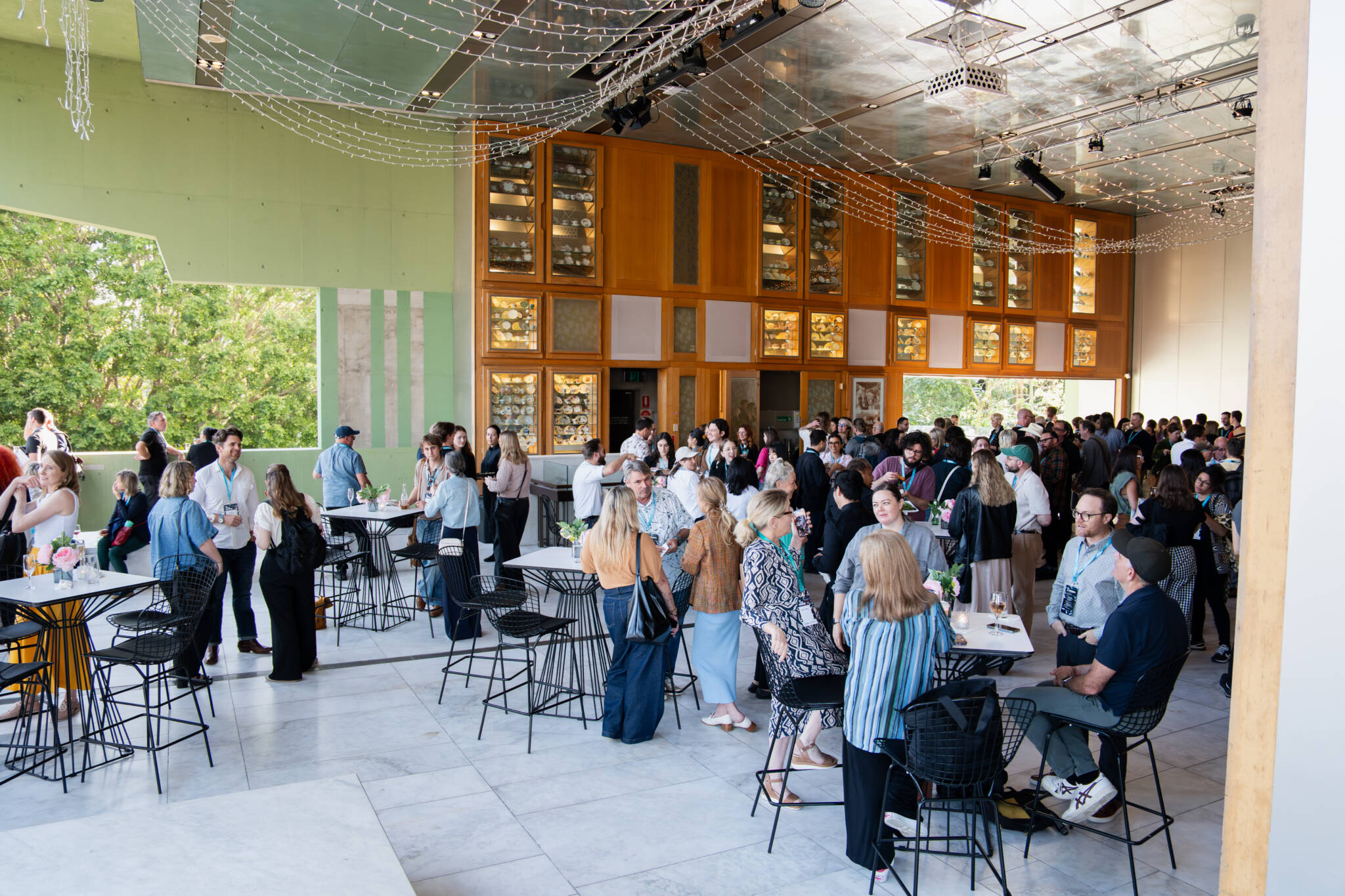
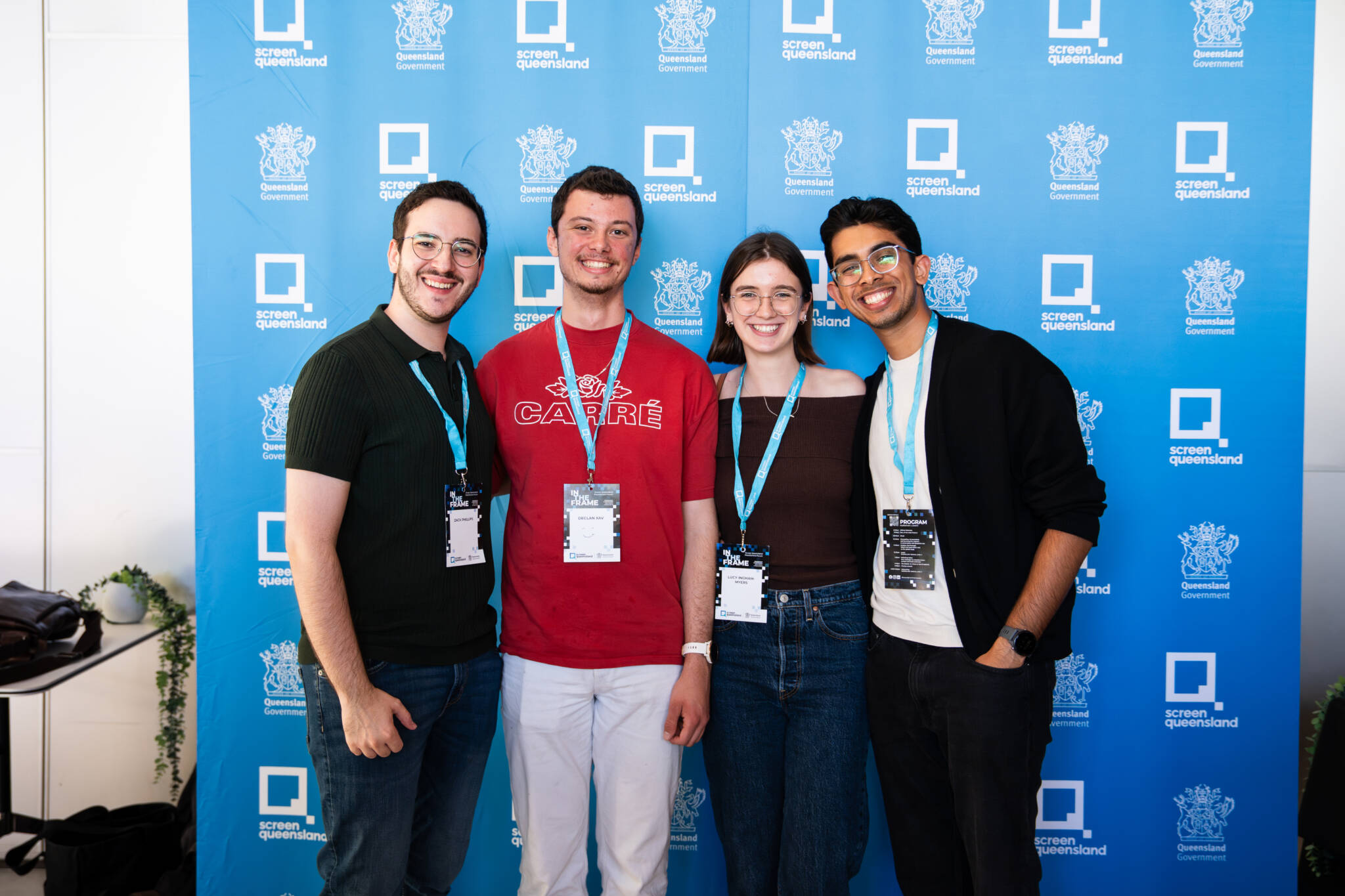
We wrapped up the day of learnings in discussion and networking with the panellists and range of creatives in attendance including writers, producers, directors, crew, post-production specialists and more. The following day, more than 30 exclusive 1:1 meetings were held in Brisbane, connecting attendees with select panellists.
Thanks to everyone who attended, and subscribe to our fortnightly eNewsletter for details on future events.
Images by Amanda Gooch.



